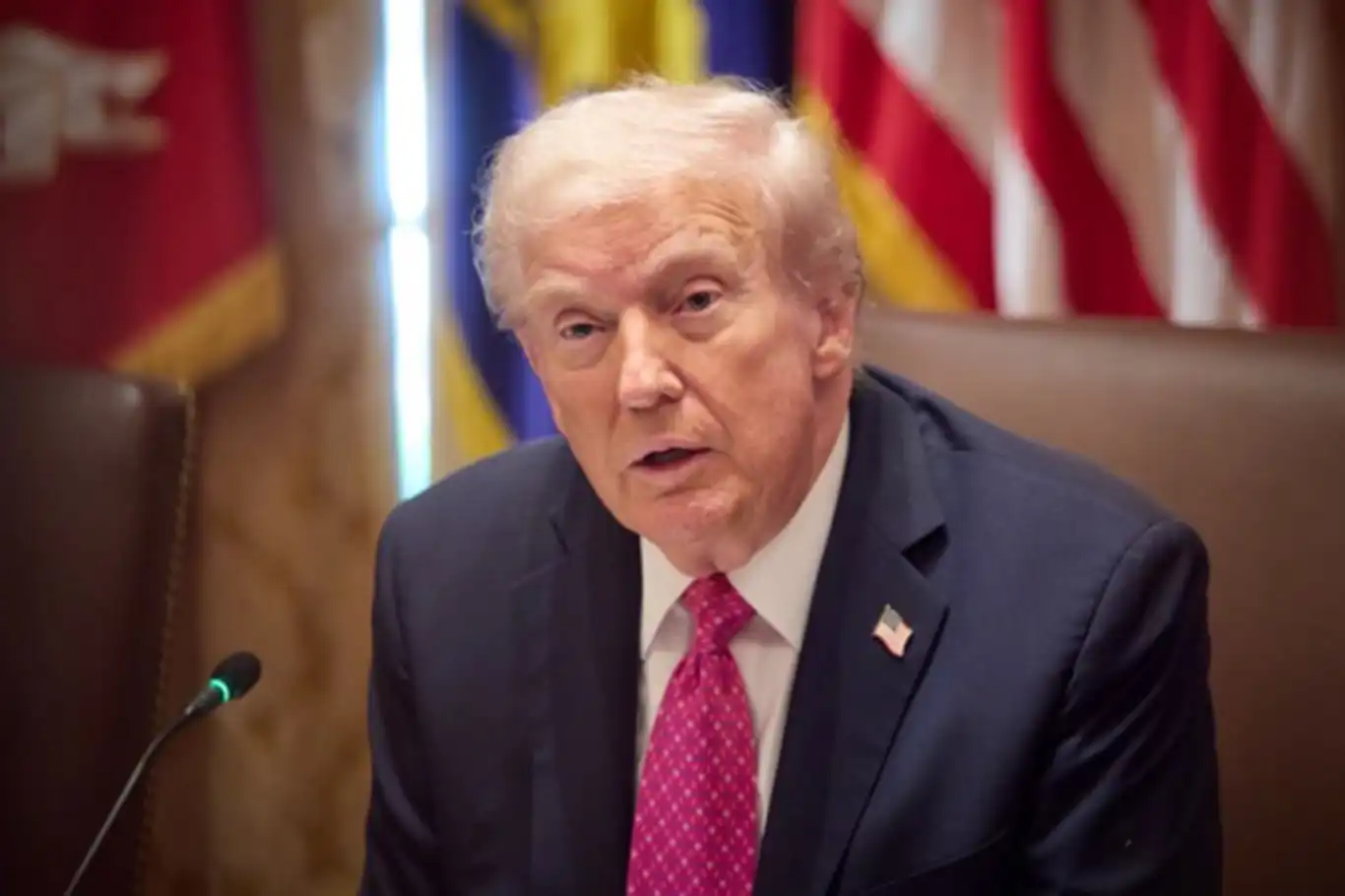Trump prioritizes U.S. defense over Ukraine's arms plea


U.S. President Donald Trump stated in a Fox News interview aired Sunday that America cannot supply Ukraine with all the weapons Kyiv is requesting, prioritizing U.S. defense needs amid the ongoing war with Russia.
The remarks, delivered during a wide-ranging discussion on "Sunday Morning Futures" with anchor Maria Bartiromo, underscore Trump's shifting approach toward the conflict, emphasizing rapid negotiations over escalated military support.
"You know, we can't give all of our weapons to Ukraine. We just can't do that. And I've been very good to President Zelensky and to Ukraine, but we can't—we can't give, you know, if we're going to be short. I don't want to do that. I can't jeopardize the United States," Trump said, highlighting concerns over depleting U.S. stockpiles of advanced systems like Tomahawk cruise missiles.
Trump's comments came days after a contentious White House meeting on October 17 with Ukrainian President Volodymyr Zelensky, where the Ukrainian leader sought commitments for long-range Tomahawk missiles to enable deeper strikes into Russian territory. According to multiple reports, including from the Financial Times and The New York Times, the encounter devolved into a heated shouting match. Trump reportedly discarded Ukrainian frontline maps in frustration, cursed repeatedly, and urged Zelensky to accept Russian demands or risk destruction, echoing points allegedly raised by Russian President Vladimir Putin in a prior phone call.
Sources familiar with the discussion told Reuters and Axios that Trump warned Zelensky: "If he [Putin] wants [a war], he will destroy you." The president also floated the idea of security guarantees for both Ukraine and Russia, leaving Zelensky's delegation "baffled" and disappointed, as no firm pledges on weapons materialized. Zelensky, speaking to reporters afterward, described the talks as "productive" but remained "realistic," noting Trump neither fully endorsed nor rejected the missile transfer. He even proposed a potential barter—Ukrainian drones for U.S. Tomahawks—but Trump expressed hesitation, citing escalation risks.
On Putin’s willingness to end the war without major territorial gains, Trump was blunt: "Well, he's going to take something. I mean, they fought and he has a lot of property. I mean, you know, he's won certain property." This aligns with reports from The Independent and The Washington Post that Trump now anticipates Ukraine ceding occupied regions like Donbas, a stark reversal from his late-September rhetoric promising Kyiv could reclaim all lost land. Analysts suggest the pivot followed Putin's October 16 call with Trump, where the Russian leader reportedly demanded full Ukrainian withdrawal from Donetsk as a precondition for talks.
The interview has fueled speculation about an impending trilateral summit in Budapest, Hungary, potentially involving Trump, Putin, and Zelensky. Hungarian Prime Minister Viktor Orbán, a vocal advocate for negotiations, confirmed Hungary's readiness to host, calling it a "path of common sense" in a statement Saturday. Trump has described the venue as ideal for "substance," though details remain fluid—Zelensky has expressed willingness to attend but insists on preconditions like Russian withdrawal from all occupied areas.
Zelensky, undeterred, rejected territorial concessions in a Monday address from Kyiv, declaring: "We will not give anything to Russia." His stance drew praise from European allies but criticism from pro-negotiation voices, including U.S. Vice President JD Vance, who tweeted support for a "ceasefire along current lines" to halt the "killing." On X (formerly Twitter), reactions were polarized: Anti-war activists decried Trump's approach as "bowing to Putin," while others, like investor Kirill Dmitriev, accused Ukrainian leaks of undermining U.S. peace efforts.
Trump reiterated confidence in brokering a deal, telling Fox News: "I think we can resolve the situation with Russia. It's not easy... but there's also great potential for trade." He praised his rapport with Putin, contrasting it with Zelensky's pleas for pressure on Moscow. However, the U.S. has quietly ramped up intelligence sharing with Ukraine on deep Russian targets, per CNN sources, signaling a hedging strategy ahead of talks.
The war, now in its fourth year, has seen Russia capture nearly 5,000 square kilometers in 2025 alone, per Putin's October claims, bringing occupied territory to about 20% of Ukraine. Escalated strikes on energy infrastructure—Russian drones hit Ukrainian grids overnight Sunday, while Kyiv targeted Russian oil depots—have killed dozens and displaced thousands, per UN reports. NATO defense ministers, meeting in Brussels this week, pledged €10 billion in additional aid, but Trump's signals have rattled allies, with German Chancellor Friedrich Merz warning of "unpredictability" in U.S. commitments.
Humanitarian groups like Amnesty International condemned any push for concessions, arguing it rewards aggression. As Budapest looms, the conflict's fate hinges on whether Trump's deal-making yields peace—or prolongs Europe's bloodiest war since 1945. (ILKHA)
LEGAL WARNING: All rights of the published news, photos and videos are reserved by İlke Haber Ajansı Basın Yayın San. Trade A.Ş. Under no circumstances can all or part of the news, photos and videos be used without a written contract or subscription.
Centre-right senator Rodrigo Paz Pereira, 58, has emerged victorious in Bolivia’s presidential runoff election, signaling a dramatic political shift after nearly 20 years of dominance by the leftist Movimiento al Socialismo (Mas) party.
The Defense Minister of the Islamic Emirate of Afghanistan has expressed Kabul's commitment to fostering stronger relations with Pakistan based on mutual respect and expanded trade, while urging dialogue to resolve ongoing tensions.
Yemen’s Deputy Foreign Minister Abdulvahid Abu Raas has issued a stern warning to the israeli occupation regime after it resumed brutal attacks on the Gaza Strip. He emphasized that any violation of the ceasefire would force Israel to pay a heavy price and incur greater losses than before.
U.S. President Donald Trump suggested that the leadership of Hamas was not responsible for the recent death of two Israeli occupation soldiers in southern Gaza, attributing the incident instead to “rebels within” the movement.